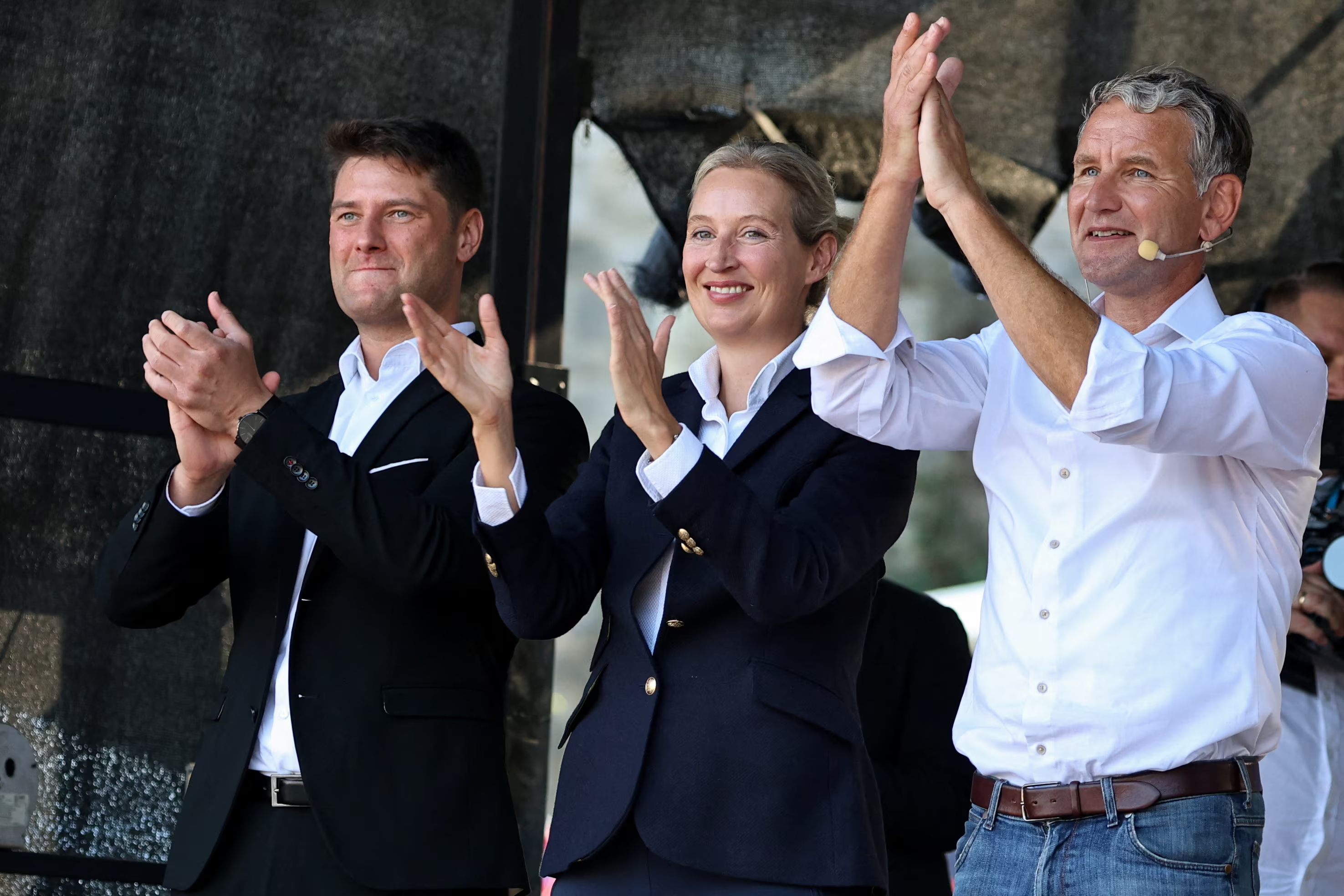AfD's Tough Fight in Germany's National Elections - First Chancellor Candidate Weidel's Confident Campaign
The Alternative for Germany (AfD) party is on track to achieve its strongest-ever result in the upcoming national elections and is fielding its first-ever candidate for the position of Chancellor. Although their rise to power is not immediately likely, they have become a political force that other politicians cannot ignore, shaping the debate on immigration in Germany.
AfD's Tough Fight in Germany's National Elections - First Chancellor Candidate Weidel's Confident Campaign
AfD's Tough Fight in Germany's National Elections - First Chancellor Candidate Weidel's Confident Campaign
The Alternative for Germany (AfD) party is on track to achieve its strongest-ever result in the upcoming national elections and is fielding its first-ever candidate for the position of Chancellor. Although their rise to power is not immediately likely, they have become a political force that other politicians cannot ignore, shaping the debate on immigration in Germany.
This far-right party first entered Germany's national parliament in 2013 after the Eurozone debt crisis, but its main focus now is on immigration control. However, AfD has also gained support on other issues, such as Germany's efforts to move away from fossil fuels, restrictions during the COVID-19 pandemic, and support for Ukraine after Russia's full-scale invasion.
When AfD was founded in 2013, it primarily opposed debt forgiveness in the Eurozone, which then-Chancellor Angela Merkel described as an "alternative-free" measure. At that time, it was known as the "professor's party," but it had a strong far-right, anti-establishment identity.
Merkel's decision in 2015 to accept refugees strengthened AfD as a political force, and in the 2017 national elections, the party secured 12.6% of the vote, gaining its first seats in the German parliament. The party became even stronger in the 2021 elections, winning 10.3% of the vote and returning to the parliament.
In this election, AfD is more confident and is running a highly aggressive campaign. The party's first-ever Chancellor candidate, Alice Weidel, has embraced the term "remigration," demanding the large-scale expulsion of all individuals who are in Germany without legal status.
AfD is calling for the immediate lifting of sanctions imposed on Russia and opposing the supply of weapons to Ukraine. They also support the reintroduction of a national currency in Germany and the transformation of the European Union into a looser "European Confederation of Nations." However, they have not taken a position to exit the 27-nation bloc directly.
Germany's domestic intelligence agency monitors the party as a far-right extremist group. However, AfD denies these allegations and rejects any ties to the Nazi era.
Experts say that AfD has been able to address issues that other parties have failed to tackle with sufficient clarity, intensity, and emotion. They present themselves as "anti-establishment," which has gained popularity among a number of younger voters.
AfD's support is particularly strong in the eastern part of Germany, which was previously under a socialist government and remains relatively less prosperous.
Among AfD's foreign allies are Austria's Freedom Party and France's National Rally, although they do not work together in the European Parliament. Another influential figure in the party, American billionaire Elon Musk, has expressed support for AfD, stating, "Only AfD can save Germany."
Elon Musk appeared at AfD's campaign event and had a live chat with Alice Weidel.










